Rising crimes against Indian women in five charts
By Geeta Pandey
BBC News, Delhi
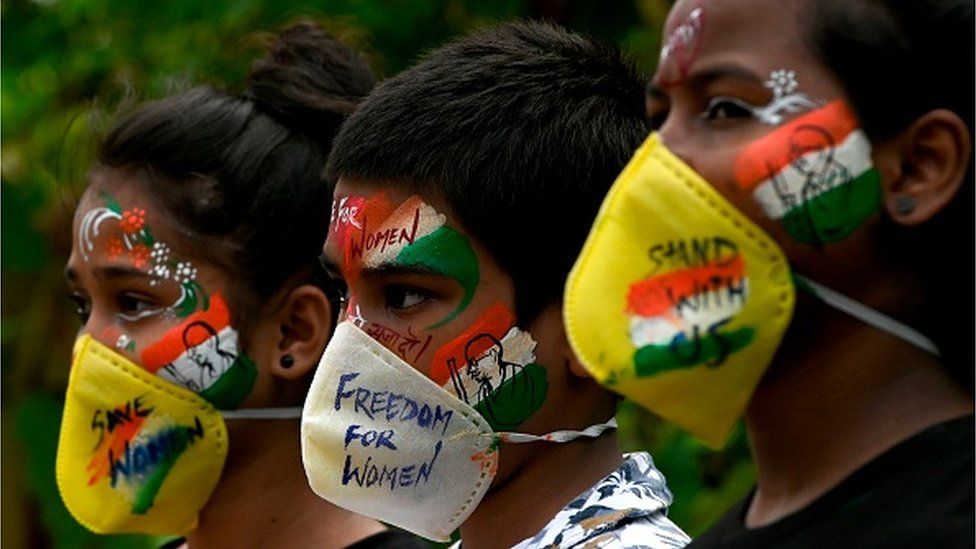 GETTY IMAGES
GETTY IMAGESIn his address to the nation on India's 75th birthday last month, Prime Minister Narendra Modi called for a "change in the mentality" towards women and asked citizens to fight misogyny.
"A distortion has crept in our conduct and we at times insult women. Can we take a pledge to get rid of this in our behaviour," he suggested, urging people to "take a pledge to get rid of everything that humiliates women in everyday life".
This was not the first time Mr Modi had talked about gender equality and respect for women.
In his first Independence Day speech as prime minister in 2014, he had condemned rapes in India saying "when we hear about these rapes, our heads hang in shame".
After eight years under his Bharatiya Janata Party (BJP) government, data shows that crimes against women remain unabated.
The numbers show a consistent year-on-year rise, except in 2020 - the year when the Covid-19 pandemic swept India and a hard lockdown forced the country to shut down for months. Experts say it also impacted data collection.
In the year 2021 - for which the government released crime data last week - India recorded the highest number of crimes against women ever.
Activists say the rising graph is a matter of serious concern, but authorities say it's because there's better reporting now and more people are going to the police to register cases.
We mined the National Crime Records Bureau (NCRB) reports for the past six years to distil the data about crimes against women and here's what we found, in five charts.
The rising graph
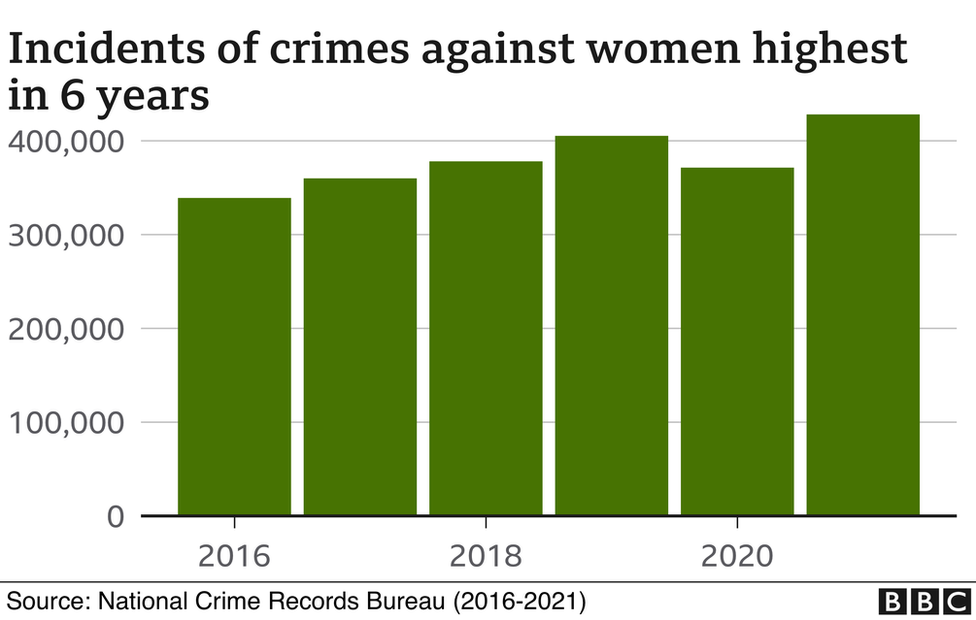
Of the six million crimes that police in India recorded between 1 January and 31 December last year, 428,278 cases involved crimes against women.
It's a rise of 26.35% over six years - from 338,954 cases in 2016.
A majority of the cases in 2021, the report said, were of kidnappings and abduction, rapes, domestic violence, dowry deaths and assaults.
Also, 107 women were attacked with acid, 1,580 women were trafficked, 15 girls were sold and 2,668 women were victims of cybercrimes.
With more than 56,000 cases, the northern state of Uttar Pradesh, which is India's most populous with 240 million people, once again topped the list.
It was followed by Rajasthan with 40,738 cases and Maharashtra with 39,526 cases.
The rape capital
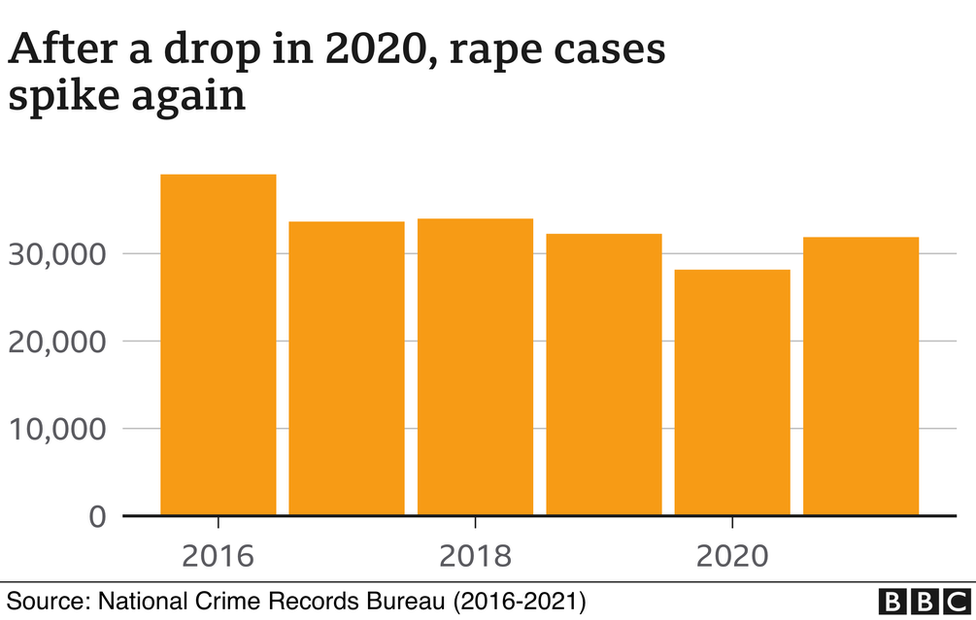
Last year, police recorded 31,878 rapes - the numbers show a steep rise from the previous year (28,153), but compared to the 39,068 women who were raped in 2016, they show a decline of 18%.
With tens of thousands of rape cases reported annually, India has earned the moniker "the rape capital of the world".
It's not because India is an exception - many countries report equal or higher numbers of rapes.
But critics say the world's largest democracy gets a bad name because of the way the victims and survivors are treated - they are stigmatised by the society, and often shamed by the police and judiciary too.
Most recently, a Muslim woman who was gang-raped and saw 14 members of her family killed by Hindu neighbours during the 2002 Gujarat riots spoke of her "searing pain" after her rapists were freed from jail.
The story of the unfair treatment Bilkis Bano received made global headlines, reinforcing the view that India is often unkind to its women.
Taken away
The latest data records 76,263 kidnappings and abductions of women - up 14% from 66,544 in 2016.
Some of the crime was linked to murder, ransom and many were trafficked for prostitution and domestic work.
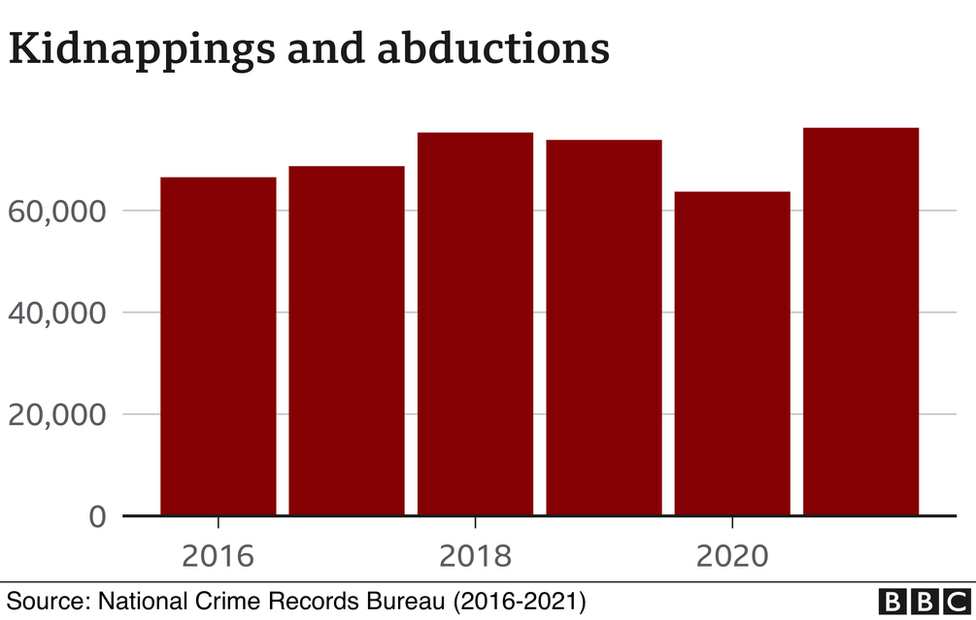
But a large majority of the kidnapped women - 28,222 - were taken away to "compel her for marriage".
Experts say many of these cases are false and are filed by families of women who elope with their lovers despite parental disapproval.
The enemy at home
Violence inside the home is mostly recorded under the legal term of "cruelty by husband or his relatives" and it has consistently been the most reported violent crime against women in India.
In 2021, police received complaints from 137,956 women - which breaks down to about one every four minutes. It's an increase of 27% from 2016 when 110,434 women sought police help.
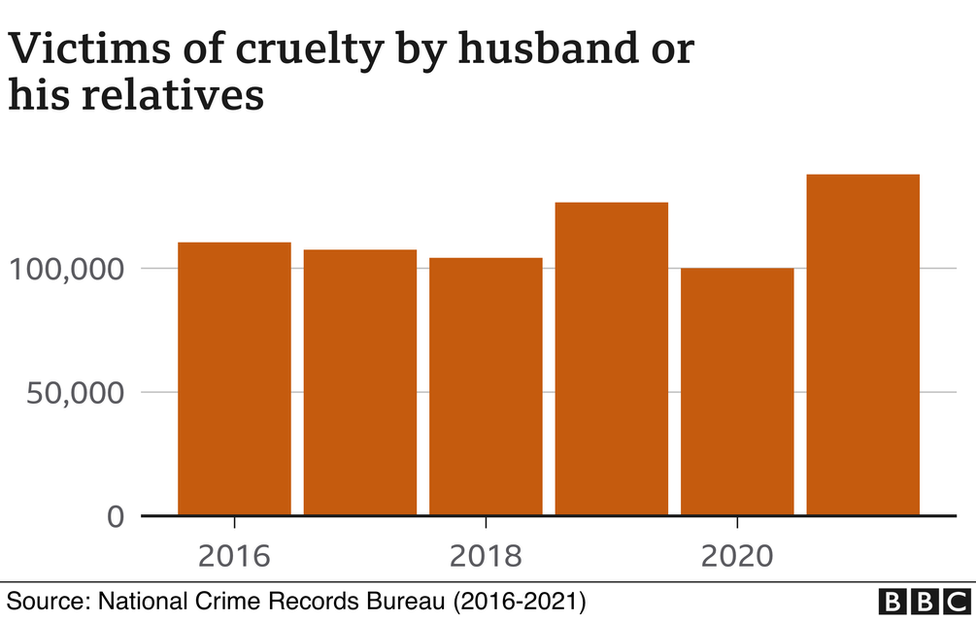
Such violence is not unique to India - the World Health Organization says one in three women globally face gender-based violence and the numbers for India are similar.
But what sets it apart here is the silence that surrounds to, even approval for violence at home.
More than 40% women and 38% men told a recent government survey that it was okay for a man to beat his wife if she disrespected her in-laws, neglected her home or children, went out without telling him, refused sex or didn't cook properly.
No happily ever after
Even though India outlawed dowries in 1961, the centuries-old tradition of the bride's family gifting cash, gold and other expensive items to the groom's family remains rampant.
According to a recent World Bank study, dowry was paid in 95% of marriages in rural India.
Campaigners say new brides are often harassed for not bringing in sufficient dowry and thousands are killed by their husbands and in-laws every year.
Most are burnt to death and the murders are passed off as "kitchen accidents".
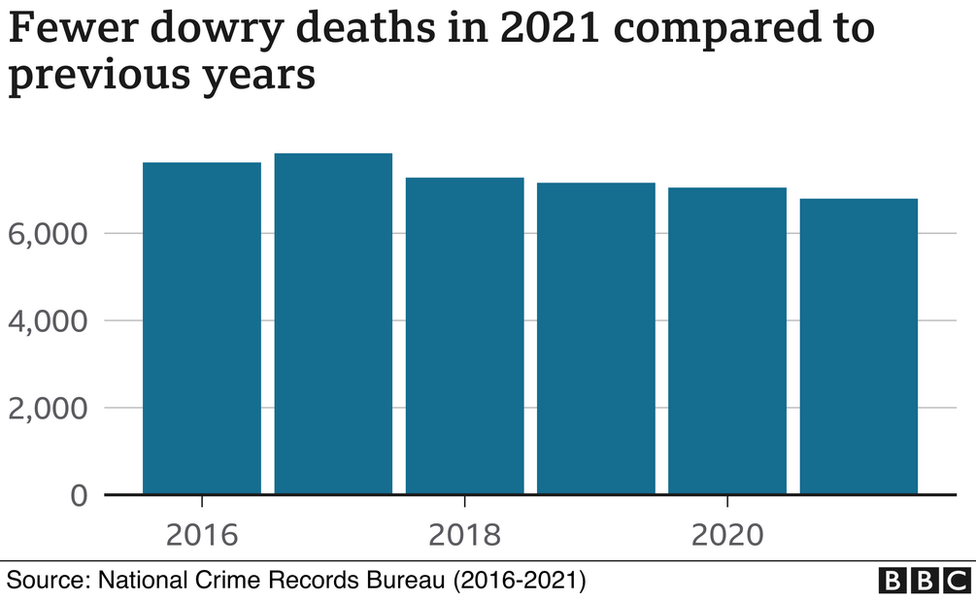
In 1983, India introduced a tough new law - Section 498A - to curb dowry deaths, but thousands of brides continue to be murdered every year.
Last year, police recorded 6,795 dowry deaths - or on average, one every 77 minutes.
The numbers are a 10.92% improvement over 2016 when police registered 7,628 dowry deaths.
Data interpretation and graphics by BBC's Shadab Nazmi
No comments:
Post a Comment